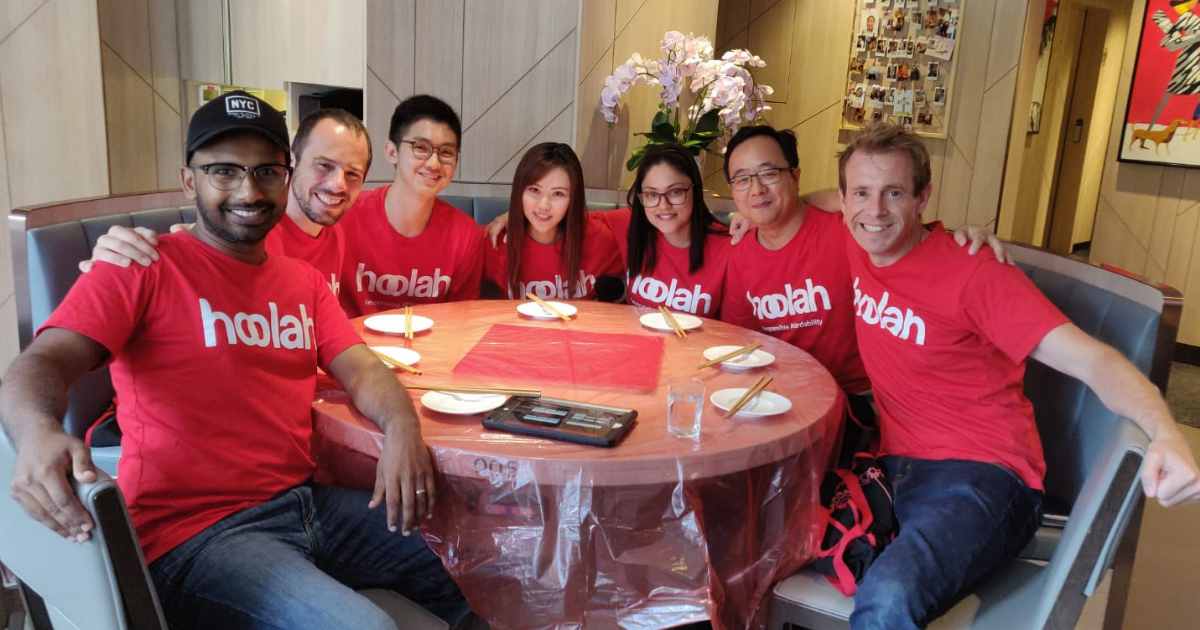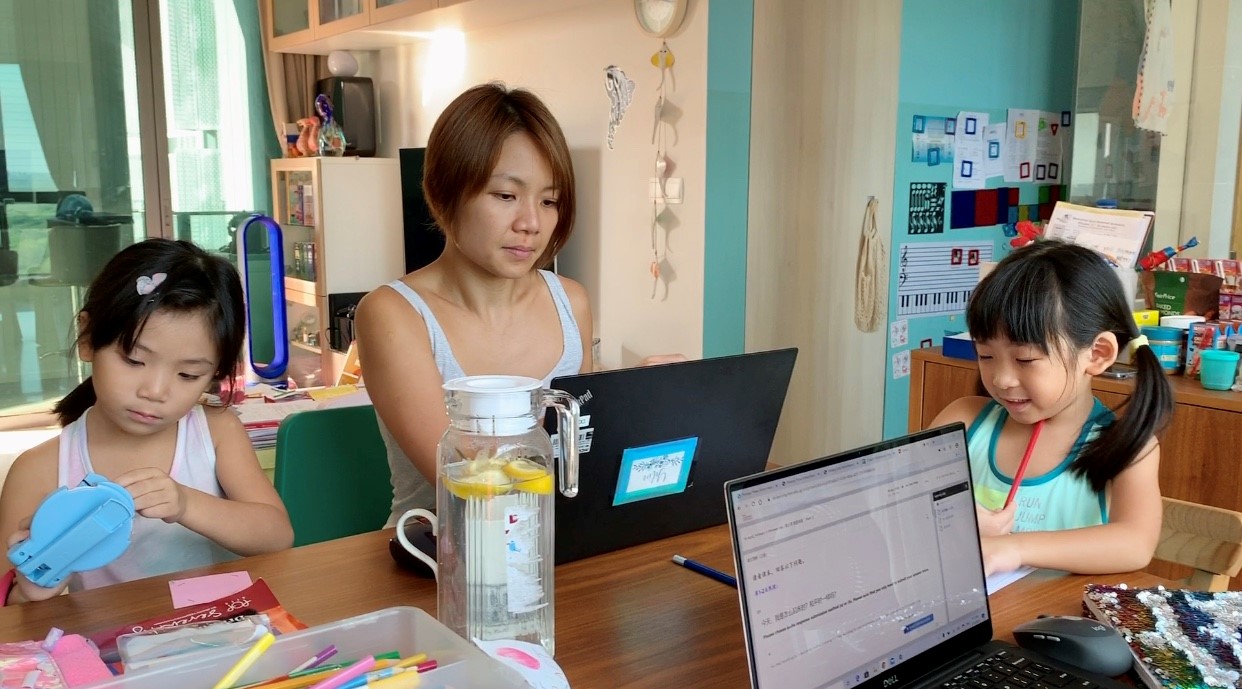Typically, a tertiary student or a university undergraduate wouldn’t have the means to own a credit card.
Maybe a young working adult with two to three years of experience under their belts might be able to apply for one.
But a credit card is not necessarily for everyone.
So what can people who prefer shopping online do when it comes to big-ticket purchases?
According to Stuart Thornton, co-founder and CEO of hoolah, up to 75% of ecommerce consumers would abandon their online shopping carts after looking and adding items to it.
“This is a massive missed opportunity for retailers,” he said.
So, together with his ex-colleague, Arvin Singh, they decided to come up with a ‘buy now pay later’ option for consumers in Singapore.
We got to speak with Arvin, co-founder and COO of hoolah, on the insights he has and the challenges they face.
7-Figure Funding; 8 Months Of Operations

Formerly an employee at Visa for two years, Arvin’s experience laid in driving card issuance through new payment enablers like fintech companies and other non-bank entities.
“That role really gave me the exposure into the operational mindset of fintechs and insights on how they managed to scale their businesses efficiently through automation,” he shared.
“It also made it clear to me how important it was to build a great team of people committed to the same cause and to remain focused on those same people as well as the business priorities.”

The founders met as colleagues at Worldpay, a global payment processing company.
“[We] had an established trust and respect for each other’s work ethic and style. This made it an easy decision for us to work together again and to build something,” Arvin told us.
“The idea was the next critical piece. Doing something in payments was logical given our backgrounds and the ability to deliver something that created affordability in a responsible manner was very appealing to me.”
Arvin came aboard because he believed that they would be able to deliver value for both their merchant partners and consumers.
hoolah was then established February 2018 and the startup subsequently raised a seven-figure sum eight months later.

According to Arvin, their investors saw an experienced and capable team with deep payments expertise, a clear execution plan, and the required technology to scale across Asia Pacific.
hoolah is set out to solve certain pain points for both consumers and merchants.
“For consumers, they want and need a variety of products and there’s a preference of getting these items as soon as possible.”
“However, they’re looking for transparent, cost-effective, responsible manners for buying these items – which hoolah provides,” said Arvin.
As for merchants, hoolah aims to help them improve conversion rates, increase repeat purchase, and grow basket size instead of spending “significant amount” of money on marketing that see low return on investments (ROI).
Old Concept, New Market

Aside from noticing an opportunity for retailers when it comes to the rate of abandoned online shopping baskets, Stuart also observed that there’s no such solutions in Asia.
While at Worldpay, he came across Klarna, a Swedish bank that offers instalment-based payments for companies like H&M, IKEA, and Lenovo in Europe.
When he spoke to those companies, he saw the opportunity to bring this concept to the region.
The ‘buy now pay later’ service is common in the Western markets and has been adopted by businesses for some time already, but there are concerns that this might make millennials incur more debt.
We asked Arvin why he thinks it’s taken this long for the concept to reach Singapore and the SEA region.
“There’s a high degree of complexity of achieving a seamless checkout experience while managing a flexible payment solution that includes risk management, consumer payback, direct merchant integration, merchant side funding and the commercials,” he explained.
“As a result, Singapore has been a tough market to bring this solution [to,] as is the rest of Southeast Asia.”
Understanding that they are also responsible to their users, of whom many are millennials, hoolah has implemented several features to ensure they are affordable and flexible.
“Our solution is purposefully short term with 0% interest while keeping late payment charges as low as we can,” Arvin explained.
He also said that they have been “proactive in educating [their] customers” to make good financial choices through their blog posts such as this.
Hiring the right people for the right roles was one of the challenges they faced in hoolah’s early days.
“It requires a high amount of time to interview and identify the best talent,” said Arvin.
“We believe that this will remain a challenge in the future, though we remain committed to spending that extra time to ensure that we bring on the right folks.”
This has proven to be a big part of our success to date and we’ve been extremely lucky to find some amazing people who believe in our mission and are committed to the journey.”
The hoolah Hook

hoolah is popular among most school-going millennials and first-jobbers aged between 18 to 26, who cannot yet qualify for a credit card.
It also serves the gig economy worker who don’t earn fixed salaries as well as the 26 to 35-year-old group of consumers who tend to spend on necessities.
So how does hoolah work?
When customers shop at any of hoolah’s partner-merchants, they can select to pay with hoolah at the checkout page.
They will be prompted to fill up a form with their details before making the first payment.
Customers will be notified via email before their next payment and the amount will be deducted automatically when it is due.
Payments are split into four equal parts to be paid over a period of two months.
On how they came to this number, Arvin explained that dividing by four is “quick and simple” for customers to calculate and understand the breakdown.
“The duration also keeps the instalments to a manageable time frame to ensure that consumers can maintain control and take responsibility of their cash repayments,” he added.
“Four instalments also give us the opportunity [for] us to engage consumers multiple times to create the right frequency of communication.”
Expressing confidence in their repayment model, Arvin said that they believe that it is “uniquely positioned for success” even though it’s “difficult to create”.
“As a Singapore-based business, the starting point for us has been looking at how consumers engage with the banks for their credit card-based instalment plans, though we see these options as more complementary and for much larger purchases in life.”
“Some people associate instalments with a monthly repayment. We have purposefully kept the repayments more frequent,” he elaborated.
For example, instead of paying a large sum at the end of the month such as a phone bill, education or housing loans, a repayment every fortnight helps their customers better manage their cashflow and be conscious of the amount they haven’t yet paid for.
“Ultimately, we want to be a service that can help everyone afford what they want easily, and responsibly,” Arvin added.
“This model has been shown to be successful in multiple geographies around the world. Our unique positioning is our ability to manage this, market by market, across Asia Pacific.”
Another attractive feature of the hoolah service is that it’s completely interest-free.
The firm charges merchant-partners a fee for every successful transaction made using hoolah and don’t charge setup fees or create “onerous contracts”, Arvin claimed.
“Their success is our success and we take a joint approach in ensuring that. This allows us to keep the platform truly free for consumers.”
“There are no hidden fees, processing costs or other catches for using hoolah.”
On hoolah’s growth, Arvin exclaimed, “It has been unbelievable!”
The team grew from just four members to over 20 in the last nine months, and they are still looking to fill a couple more roles.
So far, in 2019, the company’s merchant base has grown 10x and they’ve just onboarded their 100th merchant.
They’ve also had month-on-month growth rates, in terms of purchase volume, in excess of 50% on average.
Arvin also shared that they will continue to develop their solution with the feedback they’ve gathered from both merchants and consumers.

They plan to launch into their second market soon, though Arvin didn’t reveal where.
hoolah is also in the midst of onboarding their first batch of travel merchants to grow a new vertical.
“Beyond that, we are currently raising our next round of funding, which will allow us to bring the solution into the physical retail space.”
“Growing at this rate requires amazing people, so we do hope that folks reading this and getting excited about this journey are encouraged to reach out and check out our open roles!”
Check out hoolah here.
Featured Image Credit: hoolah Singapore








